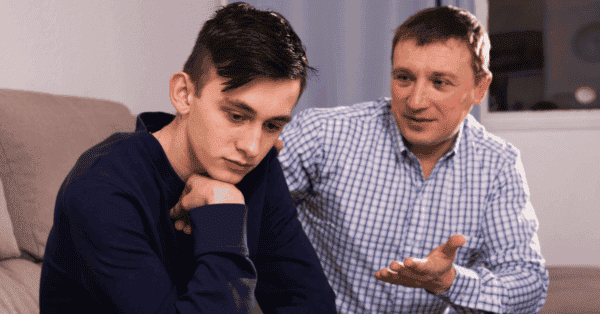Protect children from radicalisation
Talking about radicalisation with young people can be difficult, get support on how to start the conversation to support your child on this issue.
Talking about radicalisation with young people can be difficult, get support on how to start the conversation to support your child on this issue.

Radicalisation is a process by which individuals, often young people, move from supporting moderate mainstream views to supporting extreme ideological views.
This process can occur online through exposure to and engagement with violent ideological propaganda, or offline through extremist networks. Radicalisation makes those at risk more likely to support terrorism and violent acts of extremism, and possibly even commit such criminal acts themselves.
Create a safer environment to help children share their digital life with expert tips.
See guideCreate a safe space for them to talk and let them know that you're there to help if they get into trouble online
Online safety advice for parents | How to talk to children about radicalisation
Create a safe space for them to talk and let them know you’re there to help them if they get into trouble online. The more they can talk, the more you’ll be able to help them make smart choices online
Your child is far more likely to be open and honest with you if you remain calm about the situation
Online safety advice for parents | How to talk to children about radicalisation
Your child is far more likely to be open and honest with you if you remain calm about the situation.
Talk about their online friends, where they met, how they communicate, and what information they share
Online safety advice for parents | How to talk to children about radicalisation
Talk about their online friends, where they met, how they communicate, and what information they share. Remind them that people they meet may not be who they say they are, and may have ulterior motives for befriending them.
It's important to debate ideas with your child to help them become more critical about their beliefs without shutting down their point of view
Online safety advice for parents | How to talk to children about radicalisation
It's important to debate ideas with your child to help them become more critical about their beliefs without shutting down their point of view.
Highlight the realities and consequences of radical ideas and the effect they can have on them and others
Online safety advice for parents | How to talk to children about radicalisation
Highlight the realities and consequences of radical ideas and the effect they can have on them and others
This is a difficult topic to approach your child with and it needs to be dealt with sensitively if you’re concerned about their behaviour.
Here are some tips to help you raise the subject and information to give your child to prevent them from being unintentionally exposed to radical ideas:
Let them know you’re there to help them if they get into trouble online – and if they’re concerned about something they can come to you.
Your child is far more likely to be open and honest with you if you remain calm about the situation.
Your child’s beliefs are a sensitive subject and need handling carefully as you don’t want to push them away or shut them out.
Many young people are often not aware of the realities and consequences of the radical ideas they have formed or the arguments against them.
Make sure your child is aware that if something they see only worries them or is uncomfortable, their best course of action is always to talk to an adult they trust.
Find out what sites they go to, where they met their online friends, how they communicate, and what information they share. Talk to them about being cautious about what they share with people online. Remind them that even though people they’ve met online might feel like friends they may not be who they say they are and that they may have ulterior motives for befriending them.
Teach your child to never arrange to meet someone they only know online without a parent present.
It is difficult to know at what point you should make your children aware of the online subculture of online extremism. There is no perfect time to brace these issues, so keep in mind your own child’s maturity and risk to online threats. If your child is independently using the internet, it is important to provide basic advice ensuring they do not reveal private information, speak to strangers or visit restricted websites.
It is important to approach the topic of radicalisation in a subtle manner, for example by making reference to events on the news. You can then seek to discuss these situations, ask what they might have done if they were there, and gauge their reaction. Alternatively, you could ask their advice on behalf of a ‘friend’ who is expressing particular views, or whose child is doing so, and again see how they react.
It is important for your understanding that you ask your child to show you how they spend their time online, perhaps by asking for pointers on how to use the internet and different apps. The more involved you are in their online life, the better you will understand whether or not your child is being radicalised. Ask them about specific websites they frequently visit or people they speak to and how they know them.
See more articles and resources to help children stay safe online.